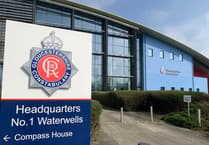Just before the long weekend, the government released its plan to reduce sewage pollution, and we were dismayed that they had not revised their targets for water companies. This means that we’ll still be living with sewage pollution for far too long.
We told government that the draft of the plan was too little, too late. We wanted to see more in the plan that helped to deal with the problems of storm water. They have listened to us and improved some parts of the plan - so THANK YOU for your support. Here’s a quick explainer to see what’s good, bad and ugly.
First, the bad:
Government has only set targets for water companies, yet developers, highways and local authorities are all part of the problem upstream. We wanted to see targets for the root causes of too much storm water in our sewers. And the targets are too far in the future – only half of all overflows will be improved by 2040; we wanted to see all of them dealt with by this date. 85% of the thousands of people who responded let the government know this is too late, but their opinions were not heeded.
But there is good:
The targets do prioritise important ecological sites and will improve 75% of those by 2035. Plus, spills near all bathing waters must meet standards by that date. We would like to see much faster action, but at least sites important for nature and people are the front runners.
The revised version of the plan responds to our ask for more detail on what government will do to fix up the whole drainage system. There are commitments to support more nature based solutions and next steps for government to bring in better regulations.
And the ugly:
The plan doesn’t cost all the fixes needed, but it does talk about costs being passed on to consumers. We need to be vigilant and make sure that they hold water company bosses to account, as they have promised to do, and make sure that we see investment in infrastructure put before big bonuses.
There is also confusion about whether the plan ‘legalises’ existing spills. The devil is always in the detail, but the plan says that water companies must still obey their permits, and most of those don’t have the absolute limit of 10 per year that will now be implemented.
Looking ahead
This plan will be revised in 2027. With new political leadership and a cost of living crisis in play, we need to be a strong voice for healthy rivers, holding regulators and polluters to account. You can let your MP know how much sewage was spilled in your constituency in 2021 by using the ‘Investigate’ tab on our sewage map.
Thank you for supporting us to make a difference to this plan. We will be sharing more ways to fight for healthy rivers in the coming months. Together for rivers!




